This article previously appeared on Crossfader
I don’t do well with horror. My palms get slick and any stray sound sets off alarms in my anxious brain. Therefore, it goes without saying I don’t play a lot of horror games. After all, how can I fumble for the right button in a quick time event if I’m using my hands to hide my eyes? That’s why when I do play the occasional horror title, it should be really good. It’s for this reason that I was genuinely excited to play YUME NIKKI: DREAM DIARY. As a huge fan of the original YUME NIKKI, getting my hands on the modern remake was like a dream come true.
Developed by Active Gaming Media, YUME NIKKI: DREAM DIARY is a re-imagining of the cult classic YUME NIKKI, with input from the original creator, Kikiyama. YUME NIKKI was released for free online in 2004, and has quietly gathered a strong fanbase ever since. DREAM DIARY reframes the concepts of its predecessor into a modern gaming experience, adapting the story to 3D instead of the 2D of the original, but the basis is the same. You play as Madotsuki, a social recluse who stays inside her room and sleeps all day. Sleep lets her leave her room to find doors to other worlds that she can explore. Unfortunately for everyone involved, Madotsuki’s dreams aren’t the most pleasant of experiences.
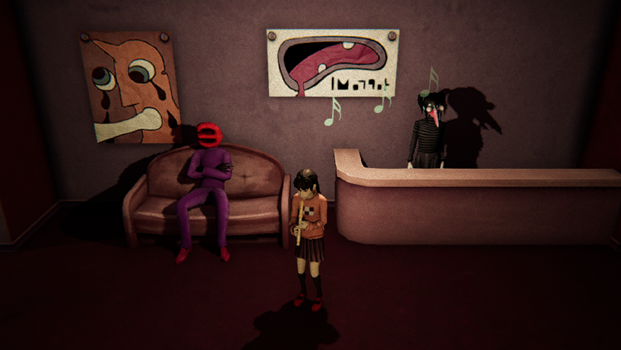
Just playing my new dream flute for my new dream friends
While rooted in the same concepts, the two games play very differently. Exploring these atmospheric worlds, devoid of dialogue or text, will lead you to encounter bizarre creatures and obtain the ambiguously-titled “effects,” which range from anything from increased running speed for Madotsuki to the ability to unlock hidden areas. While the original YUME NIKKI had an ending, the intent of the game was more about exploring the bizarre, pixelated worlds than “beating” them. DREAM DIARY, despite the upgrade to 3D, features levels where you mostly keep moving right, progressing through each world until the end, where you wake up. Each world has puzzles you solve and enemies to evade, all in a very linear structure.
Despite the restrictions in player freedom, DREAM DIARY still looks great. The grotesque characters and macabre design bring back memories of older Silent Hill and Resident Evil titles. The added dimension means that nearly all of the monsters are more horrifically realized than ever. Sound design is probably the game’s biggest strength. Everything sounds disgusting: the slimy eyeballs rolling past you, ghastly voices of enemies, every noise providing a fearful undercurrent. The chilling soundtrack complements the surreal visuals and creates an atmosphere of constant unease. I was excited to see each new level and what visual wonders it contained.
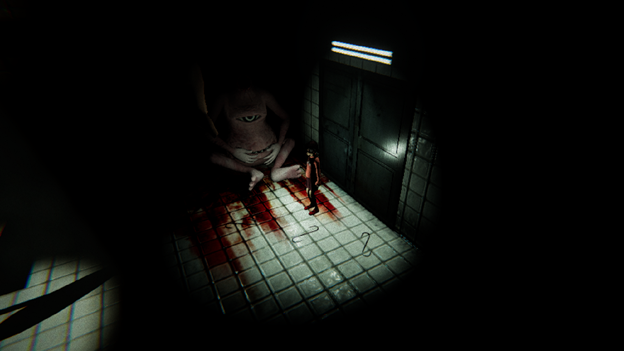
I’m watching you, Wazowski. Always watching. Always.
That being said, I also found myself dreading that the next puzzle would be such a drag I’d want to stop playing. DREAM DIARY’s unrelenting focus on completion and puzzles excessively gamifies the experience, erasing the terrifying atmosphere it attempts to establish. Most answers were so vexingly simplistic it was impossible to be scared. Puzzles feel more like busy work than obstacles, with easy solutions that require a disproportionate amount of running around to complete.
For instance, there is a door in the “street world” level that requires you to input a code to bypass an unfriendly cyclops that wants to eat you. The code is in the previous room, written on the wall. You then have to find two different sets of switches to input the code. While I was able to figure out the puzzle pretty quickly, the tedium of actually completing it was another story. There was never any point during DREAM DIARY where I had to sit and think about how to put the clues together. Solutions came easy because there was never any backtracking or work involved. I was taken out of the game world by the frustration that the puzzles seemed to have no effort put behind it, and my frustration whenever I encountered enemies.
The enemies themselves are petrifying to look at, but their presence is diminished pretty quickly due to the repetition of dying over and over. You obtain a knife at the end of the first level, but it is useless against most enemies, who instead require you to dodge them at the right moment. While you figure this out, you will die. A lot. DREAM DIARY is replete with enemies, so much so that even as a new screen loads, you’re already in the process of being attacked. This endless onslaught makes it almost impossible to figure out what the best tactic is before you’re killed again. In shocking contrast to the ease of solving the puzzles, I had to consult a walkthrough because I could not figure out how to escape certain enemies. And even if you know how to get past the enemy, it is really easy to die in the game. One false move is seemingly all it takes to send you back to the start of that section, relegating you to repeating tasks mindlessly to progress.
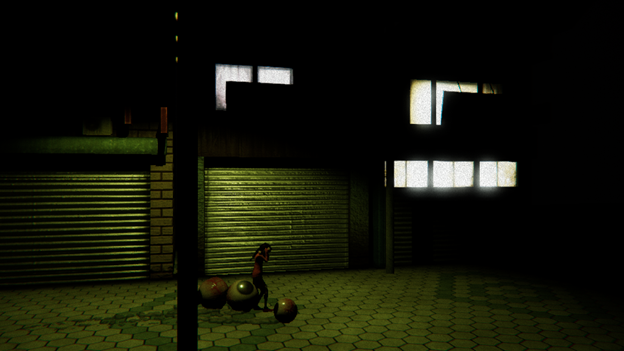
Eye would really rather prefer if you didn’t kill me
Therein lies my biggest problem with DREAM DIARY. It is a bleak, frightening vision, but it’s neither a fun gaming or horror experience. All the dark creativity that went into creating this world is squandered by an unceasing parade of “Game Over” screens. The gameplay was too sporadic in quality to be fully engaging, and I never felt challenged while trying to solve a puzzle, so I never felt that accompanying sense of accomplishment. I think I’ll just stick to the RPG version instead.
Verdict: Do Not Recommend
Reviewed on PC


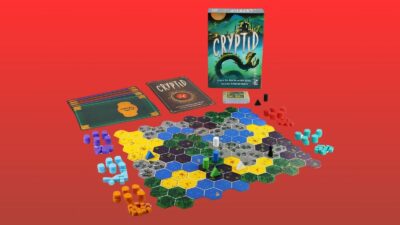

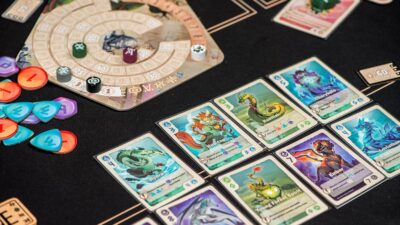
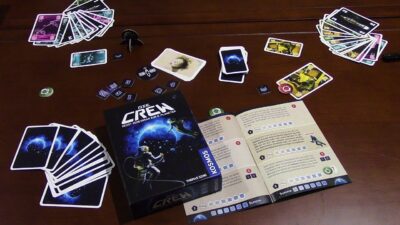
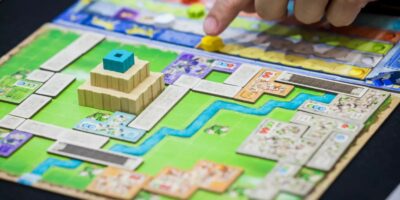

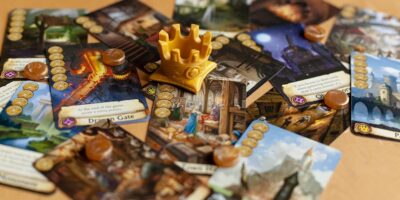


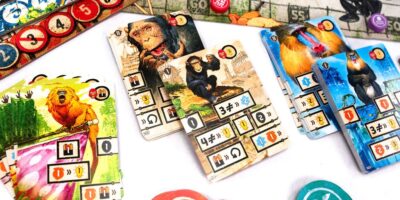




Comments